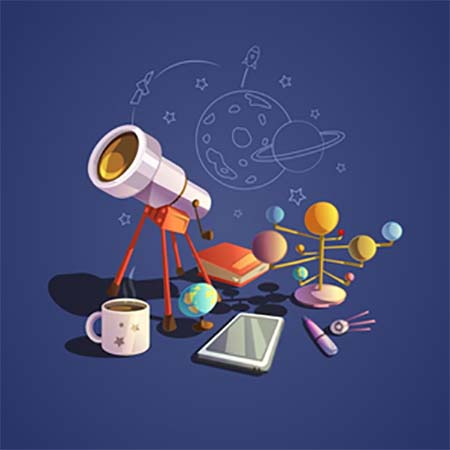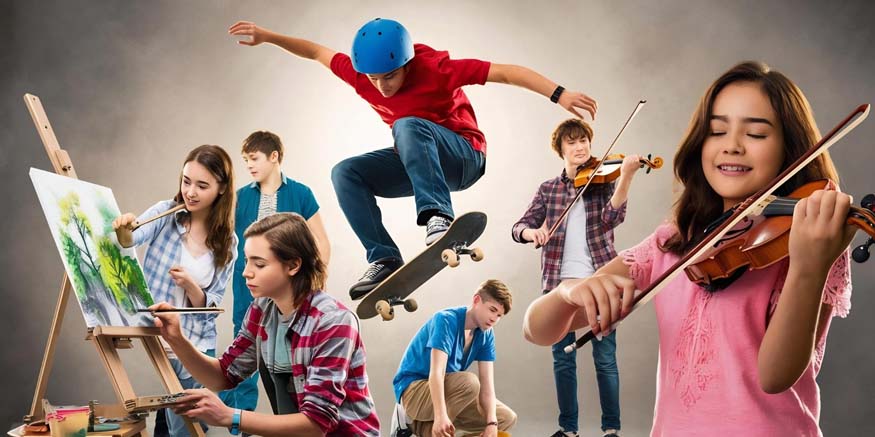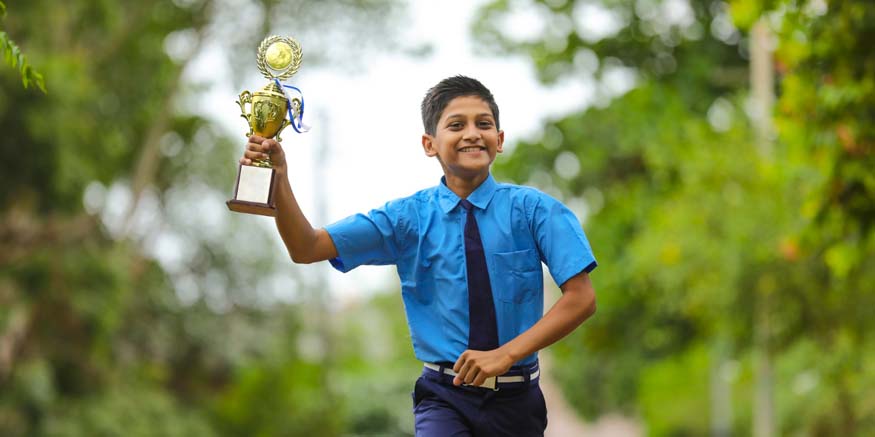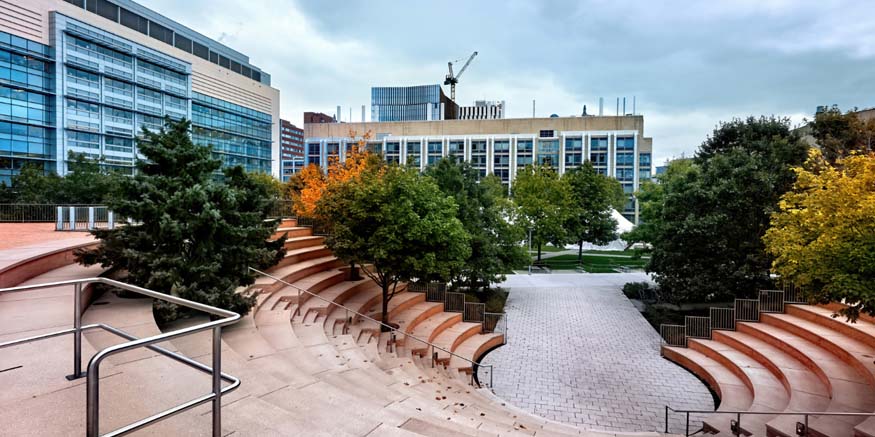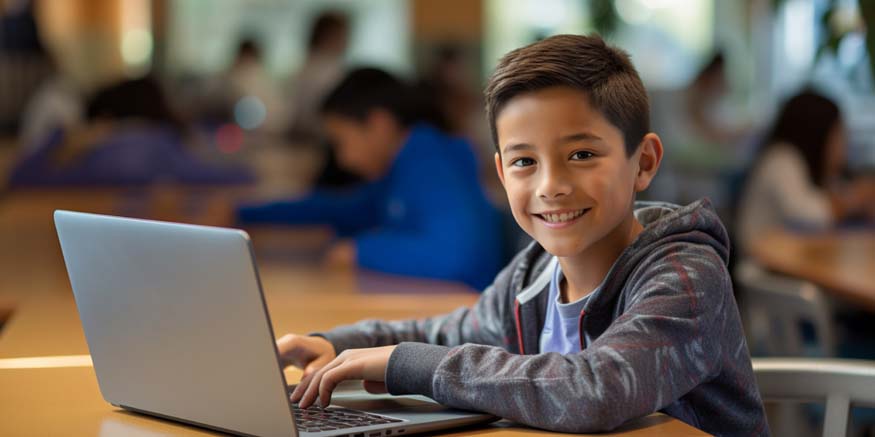There is hardly a more exciting topic to present to curious young minds because space science includes a domain far beyond our globe and offers a wealth of secrets and wonders to be investigated. Children who are exposed to space science may develop a love for knowledge and exploration that lasts a lifetime. This EuroSchool blog offers a wealth of suggestions for introducing kids to the fascinating area of space science.
Also Read: Fun science activities for kids to do at home
Tips to Get Children Interested in Space Science
Here are some tips to get your child interested in space science
Starry Nights and Backyard Stargazing
Nurturing curiosity can begin at home. Encourage children to marvel at the vast night sky. Introduce them to different astronomical phenomena such as meteor showers and eclipses, explaining the scientific principles behind them in a child-friendly manner. A fun activity could involve identifying different phases of the moon over a month.
Storytelling and Space Tales
Stoke the fires of their imagination through science fiction stories and space tales. Books and stories such as “There’s No Place Like Space: All About Our Solar System” by Tish Rabe and “The Darkest Dark” by Chris Hadfield can be great additions to their library. Enhance bedtime stories with tales from the cosmos, incorporating both mythological stories and real space adventures.
Also Read | Reading Bedtime Stories Benefits
Visits to Planetariums and Space Museums
A trip to a nearby planetarium or space museum can provide an immersive learning experience. Here, they can witness realistic simulations of the universe and get a close-up look at meteorites, space suits, and sometimes even spacecraft.
Educational Apps and Websites
Utilise educational apps and websites that offer interactive space-related activities and information. Websites such as NASA’s website for kids offers a plethora of resources that can pique their interest in space science.
Creative Arts and Crafts
Encourage them to create their solar systems using craft supplies. Drawing and painting activities, where they depict what they imagine space to be like, can be both fun and educational. In addition to solar systems, children might enjoy crafting aliens, envisaging what life might look like on different planets. Encourage them to use a variety of materials to foster creativity and tactile learning.
Space-Themed Games and Toys
Introduce them to space-themed toys and games. Building rockets and spacecraft using LEGO or indulging in space puzzles can be an enjoyable way to learn. Role-playing games, where children can act as astronauts on a mission, can not only be fun but also educational. It could be a treasure hunt where they have to find “alien artifacts” or “moon rocks”.
Movies and Documentaries
Movies such as ‘Wall-E’ and ‘Zathura’ and documentaries like ‘The Universe’ series can captivate young minds and provide a visually stimulating introduction to the cosmos.
Real-Life Space Events
Encourage them to witness real-life space events such as a rocket launch or a meteor shower. If possible, attending a rocket launch can be an awe-inspiring experience. The recent Chandrayaan -3 mission ignited curiosity among young, old and everyone.
Also Read: Chandrayaan 2 anniversary: Date, facts for children
Encourage Questions and Curiosity
Always encourage them to ask questions about space and the universe. Be patient and answer their queries, even if it means exploring the answers together.
DIY Rocket Launch
Organise a DIY rocket launch using simple materials like vinegar and baking soda to illustrate the basic principles of rocketry. It’s hands-on science and fun rolled into one. To add a mathematical element, you might ask them to measure the height their rockets reach, introducing basic concepts of data collection and analysis.
Astronaut Day
Have an astronaut day where they dress up as astronauts and learn about the life and routines of space travellers. Incorporating space food and astronaut ice cream can be a fun addition. Creating a diary of an astronaut where they can log their experiences for the day, including the food they ate, the experiments they conducted, and the sights they saw from the “space station”, can be a rewarding experience.
Encourage Critical Thinking and Problem Solving
Space science often involves complex problems. Encouraging them to think critically and solve problems will not only aid in understanding space science but also develop important skills.
Hands-on Experiments
Involve them in hands-on experiments that simulate space conditions, such as creating craters using marbles and flour or building simple rockets.
Also Read: Top Ten Amazing Fun Facts about Solar System for Kids
Space Science Camps
Enroll them in space science camps where they can meet like-minded peers and enjoy a host of space-related activities and learning experiences.
Networking and Mentorship
Encourage them to connect with professionals in the field through social platforms and webinars. Having a mentor can foster deeper interest and understanding.
Introduce them to Astronomy Clubs
Help them join astronomy clubs or online communities where they can share their experiences and learn from others who share their enthusiasm for space science.
Creating a Space Corner at Home
Create a dedicated space corner at home with space-themed books, toys, and posters, serving as a continual source of inspiration.
Celebrate Space Events
Mark important space events on the calendar and celebrate them with special activities, discussions, and learning sessions.
Space Science Projects
Guide them in undertaking space science projects. Researching and creating presentations or models can be a great learning experience.
Space Traveller’s Journal
Encourage them to maintain a journal where they record their observations, learning, and imaginary space adventures. It can be a beautiful canvas for their explorations and creativity.
Also Read: Interesting Facts about Space for Kids
Cultivating an interest in space science in children is akin to opening a doorway to a universe brimming with wonders and opportunities for learning. Through immersive, fun, and hands-on experiences, we can instil in them a deep-seated fascination for the cosmos, nurturing the next generation of astronomers, astronauts, or perhaps, even intergalactic travellers.
By taking a concerted effort to engage children in space science through these multifaceted avenues, we at EuroSchool are not just fostering a hobby, but potentially lighting the path to a rewarding and continually evolving field of study and career. It’s about sowing seeds of curiosity and wonder, nurturing them to look beyond the Earth and aspire to unravel the mysteries of the cosmos, one star at a time.

